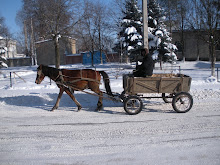To explain just how compelling acquiring a thesaurus really is, let’s back up a step or two.
In Moldova, we celebrate “Our Language Day” in late August. However, the further you get from major cities, the stronger the sentiment gets that “Our Language” is not Romanian, but rather Moldoveneasca. Rather than enter my two-cents directly, I’ll tell you this: Peace Corps pays for my Romanian language instruction (thank you tax-payers!). But it is also no secret, that when I spend time in the village, ‘b’ sounds are replaced grunting ‘g’ sounds, and many nouns are called by their Russian names.
On the whole, Moldova operates as a bi-lingual country. Some people only speak Russian, some people only speak Romanian, and some people speak Russian in state matters, but an entirely different, albeit Turkish-descending language in their daily lives. But overall, most people speak both Russian and Romanian as first languages.
I have been to Romania, heard the difference between pronunciations in Romania and Moldova, but my short time in Bucharest was not nearly enough to help me understand my unanswered question: Does the Romanian language in Romania have a higher word-count than the Romanian language as it is spoken in Moldova? This is not really a question I want anyone else’s opinion about; rather I need to experience it for myself. Too often when this question is discussed, political and historical opinions fester in the responses.
I started asking this question a few months ago when I grew increasingly bored of the word “interesting” as buy-in-bulk response to anything. Someone tells you about his or her day, “that’s interesting.” Someone describes a new fashion/recipe/experience, “how interesting!” Someone discovers a new store/product/way to get even cheaper mobile service, “Oooh, interesting.”
So, in July I hunted down some synonyms for this pesky adjective. However, the only one that truly gathered support in any true conversation was “captivating.” Now, it too is growing a little old. Thus, when I discovered the thesaurus, I immediately dived in and found the following synonyms: captivating, attractive, nice, bizarre, strange, and unusual. This week, I’m going to make some honest attempt at substituting “interesting” with “nice” and possibly “unusual” to see what the response is.
But if I haven’t lost readers completely, I’d like to explain just one more challenge in my attempts to express my thoughts and feelings as accurately as possible in this language. Since I found the thesaurus and started using it, nearly every adjective in the book that I searched for a way to strengthen lists “unusual” as a possibility. Synonyms for unusual: interesting, captivating, abnormal, eccentric, fantastic, hard-working, rare, remarkable, unused, mixed-up.
What does this say about the thoughts I am trying to express and my attempts to express them more accurately? Probably that I am trying to strengthen my vocabulary in all the wrong places…but curiosity is a pleasure and a poison.





























No comments:
Post a Comment